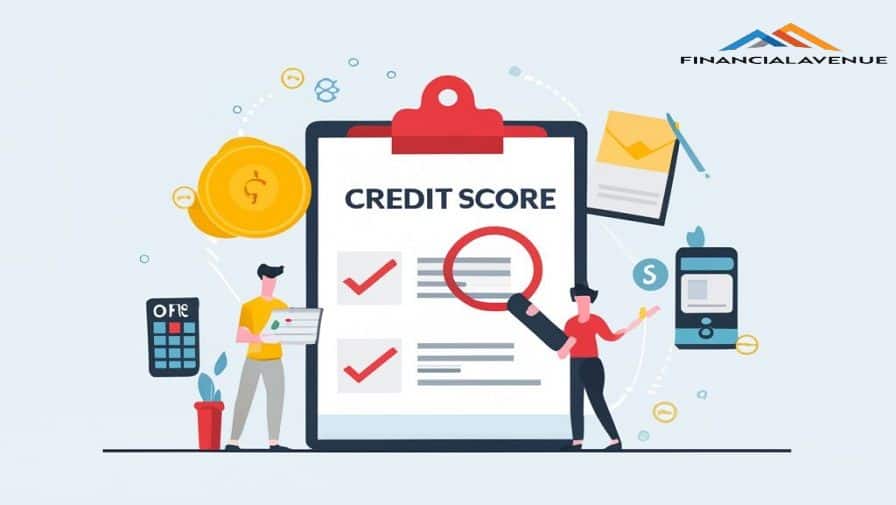Your credit score is a three-digit number that indicates your financial reliability and ability to repay debts. Most scores in the UK range between 300 and 850. The higher your score, the more creditworthy you are deemed to be. But what constitutes a “good credit score” that makes you eligible for the best deals? Let’s learn the exact facts and figures.
Quick Facts: a good credit score in the UK ranges from 881-960 on the Experian scale, 420-700 on the Equifax scale, and 604-710 on the TransUnion scale.
Why Your Credit Score Matters
Your credit score impacts much more than just getting approved for new credit products. Lenders and creditors will check your score when you apply for:
- Mortgages
- Credit cards
- Personal loans
- Car finance
- Mobile phone contracts
- Rental agreements
- And more
A higher score indicates you are reliable at repaying debts on time. This makes you eligible for more attractive interest rates and terms. With a poor score, you may get denied or only approved for the least favorable deals.
Over a lifetime, differences of just a few percentage points on a mortgage or loan can cost thousands in extra interest. So understanding what lenders want to see is key.
What Makes Up Your Credit Score
The main credit reference agencies (CRAs) in the UK are Equifax, Experian, and TransUnion. While their scoring models differ slightly, some key factors determine your Cr. score with all of them:
- Payment history – Have you consistently paid all your credit agreements on time? Late or missed payments will hurt your score.
- Credit utilization – Are you using a high percentage of your available credit limits? Keeping balances low on credit cards boosts your score.
- Credit history length – In general, a longer history of managing credit well improves your score.
- Credit mix – Having experience with different types of borrowing like credit cards, retail accounts, and loans helps.
- New credit – Too many new applications in a short period can lower your score temporarily.
Checking your own reports does NOT affect your credit score.
Overview of Credit Score Ranges
Most credit scores fall on a scale of 300-850. The following ranges give a general guide to what scores mean to lenders:
| Score Range | Rating | Likelihood of Approval | Interest Rates/Terms |
|---|---|---|---|
| 720-850 | Excellent | Very high | Best rates |
| 680-719 | Very good | High | Good rates |
| 620-679 | Good | Moderate | Average rates |
| 580-619 | Fair | Low | Higher rates |
| 300-579 | Poor | Very low | High rates/fees or denial |
So while higher is always better, what is considered a good or bad score comes down to your goals.
What Credit Score Do You Need?
The minimum credit scores expected by lenders depend on the product. Here are typical thresholds:
- Mortgages – Most mortgage lenders want to see scores of 620-640 or higher for standard home loans. 720+ scores get the very best terms.
- Credit cards – Applicants with scores in the mid to high 600s stand better chances for approval. 740+ scores likely get higher limits and lower APRs.
- Car loans – Those with scores below 600 often get denied or pay higher rates. Prime borrowers have 700+ scores.
- Personal loans – Minimum scores around 580-620 are often needed. But 700+ scores get more affordable loan offers.
While requirements vary between lenders, aiming for scores of 700 or better ensures qualification for the top tiers of credit products.
How to Reach a Good Credit Score
Here are key steps homebuyers can take to build strong credit over time:
- Open new credit accounts carefully – Too many new accounts at once looks risky. But having some open accounts, like credit cards paid responsibly monthly, helps.
- Keep balances low – High utilization hurts, so keep credit card balances under 30% of limits.
- Pay all bills on time – Payment history is very important. Set up autopay if it helps.
- Monitor credit reports – Verify all information and dispute serious errors with the CRA.
- Give it time – Length of positive history improves most scores. Be patient.
With diligence, it is realistic for most people to reach scores of 700+ within a couple years.
Common Credit Score Myths
Given how important credit scores are, misconceptions abound. Here are a couple myths debunked:
Myth: Checking your own credit report damages your score.
Fact: Performing your own credit checks has no impact on your score. Only when lenders check your report may it have a small, temporary effect. Monitoring your own credit is important.
Myth: You need to carry a credit card balance to build an excellent credit score.
Fact: This is completely false. In fact paying in full each month demonstrates responsibility and avoids costly interest.
How to Check Your Credit Score
The easiest ways to check your score any time include:
- Getting your statutory credit report from Equifax, Experian, or TransUnion once yearly for free
- Using a free service like ClearScore or CreditKarma (registration required)
- Purchasing access to your full credit reports and ongoing monitoring from the credit agencies
Checking at least annually helps you monitor for errors and changes over time. Understanding what mortgage lenders and creditors want to see allows you to work toward your best credit scores.

Daniel, a seasoned professional with over 5 years of experience in banking, property, and finance, brings a wealth of expertise to the table. This authoritative blog is meticulously curated to provide you with the most up-to-date financial insights. Delving into the dynamic realms of banking and mortgages, Daniel’s passion for finances shines through every post.










